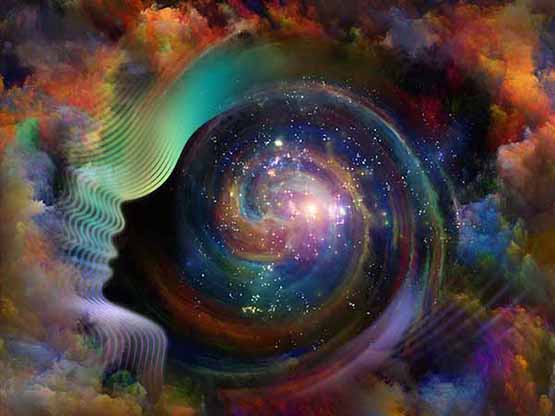

Everything you believe, whether true or false, is encoded in your DNA which attracts experiences to clarify and verify the experience. In childhood we learn what our parents, school, and religious training teaches us. As we get older we are programmed to question everything. Esoteric topics often come to the forefront in teenage years when we realize there is more to reality then its physical components. Media and the Internet has helped us we formulate our beliefs systems.
Is there an afterlife? Does reincarnation exist? One must study the nature of reality as a holographic construct in which we play many roles simultaneously - to find that answer.
Your Childhood Beliefs on Afterlife Stick With You Live Science - November 5, 2014
Childhood beliefs about the soul and afterlife stick with people as they age, shaping their views in adulthood, even if they say otherwise, a new study finds. The study is the first to examine explicit, or stated, and implicit, or longstanding but not consciously admitted, beliefs on the soul and afterlife, said researcher Stephanie Anglin, a doctoral student in psychology at Rutgers University. She examined how these personal beliefs develop, change and persist from childhood through adulthood. Implicit beliefs can be difficult to measure, so Anglin designed an experiment that tested what words people immediately associated with the soul and the afterlife.
"My starting point was, assuming that people have these automatic - that is, implicit or ingrained - beliefs about the soul and afterlife, how can we measure those implicit beliefs?" Anglin said in a statement.
Though the study is small, it may open the doors for future research on how childhood creed can influence later attitudes on social, political and moral issues, such as capital punishment, creationism and stem cell research, she said.
Views of the soul
In the new study, Anglin gave 348 undergraduate psychology students a questionnaire about their religious beliefs. About 41 of the students identified as Christian, 15 percent as Hindu, 14 percent as other, 9.5 percent as agnostic, 7 percent as Muslim, 6.5 percent as atheist, 4.5 percent as Jewish and 2.5 percent as Buddhist.
The students, with an average age of 18, used a 9-point scale to rate statements about how much they believed in the soul and afterlife when they were 10 years old and now. Students also did a word-pairing test known to reveal their implicit religious beliefs. In that part of the study, participants sorted words into categories that were flashed on a computer screen.
For instance, students could pair "soul" with either "real" or "fake," which gauged their beliefs on this concept. Students could also match "soul" with "eternal" or "death," to help Anglin understand their implicit beliefs on the afterlife.
The students' current implicit beliefs on the soul and afterlife were similar to what they recalled thinking as children, Anglin found. But their implicit beliefs did not match their stated explicit beliefs, those they reported believing in now.
The students reported their childhood beliefs in the soul were not as strong as they are now. But the strength of childhood and current beliefs on the afterlife did not differ over time, she found. Overall, the group's current belief in the afterlife averaged a 6.72 out of 9, indicating that most people believe in the afterlife, Anglin said.
People who self-identified as religious also tended to believe more in the soul and afterlife as adults than less religious students did, the study showed. Furthermore, students who identified as Muslim reported the strongest current beliefs in the soul and afterlife. Conversely, atheists reported the weakest current beliefs. In contrast, implicit beliefs about the soul and afterlife showed no difference among all religious affiliations and levels of religious belief, even agnostics and atheists, Anglin said.
The findings echo a comparable study, published in 2009 in the Journal of Personality and Social Psychology, about perceptions of the soul. Researchers in that study asked people whether they would sign a contract agreeing to sell their souls for $2 to an experimenter. "Almost nobody signed, even though the researchers told them it wasn't actually a contract and would be shredded right away," Anglin said.